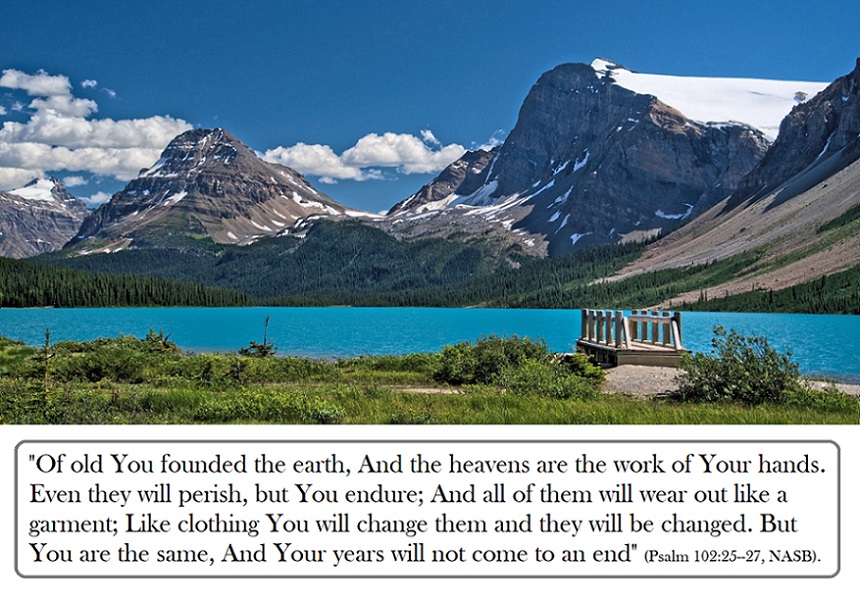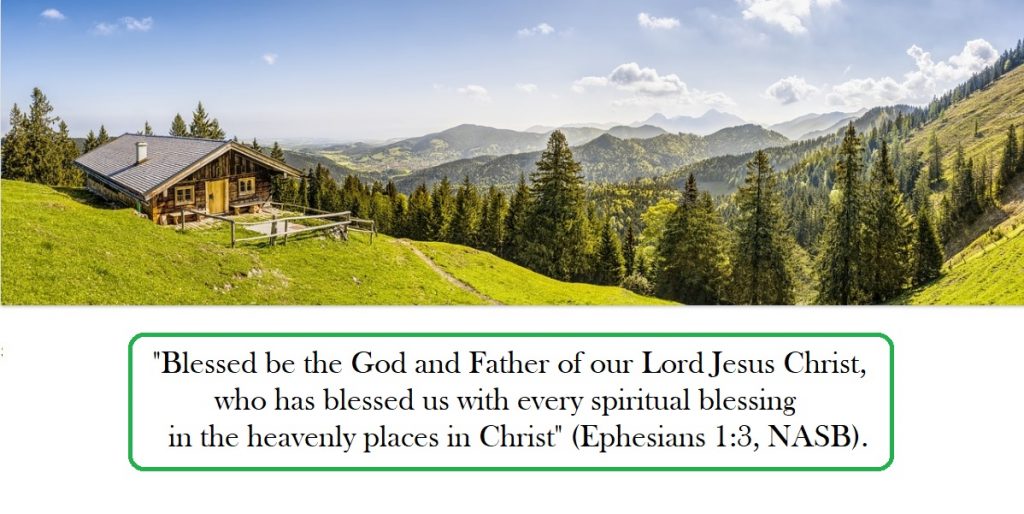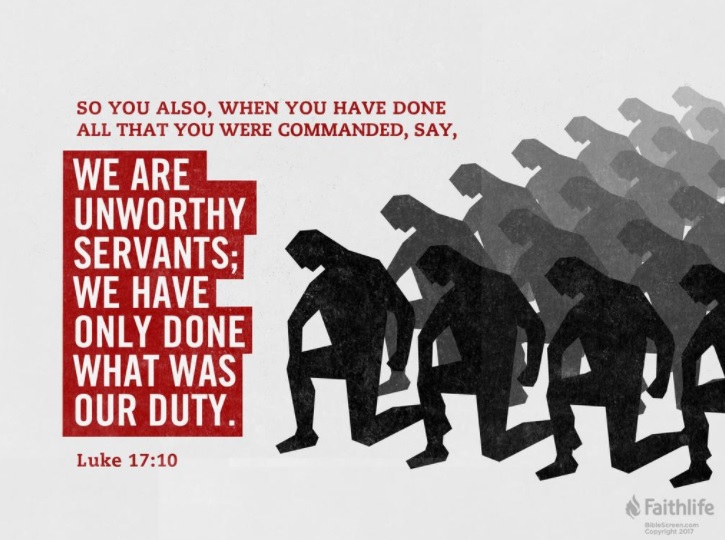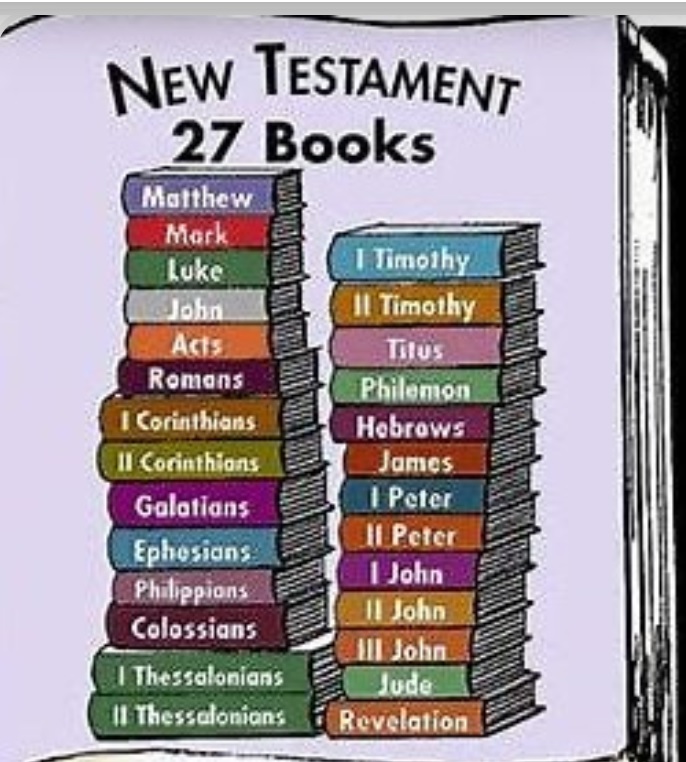“Go therefore and make disciples of all the nations…teaching them to observe all that I commanded you; and lo, I am with you always, even to the end of the age” (Matthew 28:19-20, NASB).
——————–
Contents:
1) Reflecting the Nature of God (Jim Deason)
2) Digging Deep (Frank Himmel)
3) On Geese and Friends (A.W. Goff)
4) News & Notes
——————–

-1-
Reflecting the Nature of God
Jim Deason
God’s purpose for man is stated simply and concisely: “You shall be holy, for I am holy” (1 Pet. 1:16). This holiness—a behavior—is defined by God, personified in Jesus Christ, revealed by the Holy Spirit, and recorded on the pages of the Bible. Every instruction given in the pages of the New Testament is designed to lead us to partake of the divine nature (2 Pet. 1:4), to help us “become conformed to the image of His Son” (Rom. 8:29).
It troubles me to hear some of late proclaim that Christianity is not about keeping rules. I beg to differ. Christianity is all about keeping His rules (John 14:15; Heb. 5:9), for it is in obedience to the precepts of the New Testament that we are made more and more into His image. Allow me to illustrate.
Like a city set upon a hill which cannot be hidden, those who are led by the Spirit of God are going to show it by producing the fruit of the Spirit (Gal. 5:22-23) in their lives: love, joy, peace, patience, kindness, goodness, faithfulness, gentleness, and self-control. This is by no means an exhaustive list of characteristics reflecting the nature of God, but it is a very good place to begin.
Love
Twice in 1 John 4 (vv. 8,15) the Bible tells us that “God is love.” Why? Because love is from God (v. 7). His nature defines love. He is love’s perfect illustration. What Jesus did on Calvary proves it: “But God demonstrates His own love toward us, in that while we were yet sinners, Christ died for us” (Rom. 5:8, NASB). Jesus said, “Greater love has no one than this, that one lay down his life for his friends” (John 15:13), and He did. This is unparalleled love and anyone who is led by the Spirit of God and who wants to reflect the nature of God must, therefore, be a person of love. “A new commandment I give to you, that you love one another, even as I have loved you, that you also love one another” (John 13:34).
Joy
I’ve never understood why someone claiming to be a Christian would walk about with such a sour disposition that he looked like he was weaned on pickle juice. God intends that we be a people of joy. Paul said, “Now may the God of hope fill you with all joy and peace in believing” (Rom. 15:13). Later, he instructed the Philippians to “Rejoice in the Lord always” (Phil. 4:8). Why such joy? Because joy is a part of God’s nature. Picture this: “as the bridegroom rejoices over the bride, so your God will rejoice over you” (Isa. 62:5). The moment my wife said “I do” was exhilarating, one of the happiest moments of my life. In the same way, God finds great joy in those who serve Him and wants you to experience the same joy.
Peace
Peace is a state of tranquility, the absence of mental stress or anxiety. At least five times in Scripture God is referred to as the “God of peace” (Rom. 15:33; 16:20; Phil. 4:9; 1 Thess. 5:23; Heb. 13:20). Jesus is our source of peace (Eph. 2:14,17) and called the “Prince of Peace” (Isa. 9:6). Is it any wonder, then, why we are told that “the one who desires life, to love and see good days. . . must seek peace and pursue it” (1 Pet. 3:10-11). I understand there are times when we must go to war, spiritually speaking (2 Cor. 10:4; Eph. 6:10-17). But the person who is disposed to choose war over peace does not yet possess the spirit of Christ.
Patience
Studying the Old Testament teaches us a lot about the nature and character of God, particularly His patience. Thirteen times the Lord is said to be “slow to anger” (cf. Num. 14:18) and that phrase is usually surrounded by other traits of God such as lovingkindness, forgiveness, mercy, and graciousness. One should never take lightly “the riches of His kindness and tolerance and patience” (Rom 2:4). Quite literally, it is our salvation (2 Pet. 3:15). So, if you want God to be patient with you, reflect His nature and be patient with others (1 Thess. 5:14; 2 Tim. 2:24-25).
Kindness
Kindness is the quality of being helpful, having a benevolent nature. God asks us nothing more than what He is Himself: “But when the kindness of God our Savior and His love for mankind appeared, He saved us, not on the basis of deeds which we have done in righteousness, but according to His mercy” (Titus 3:4-5). We are not surprised therefore, since God wants us to be like Him, that we are told to “Be kind to one another, tenderhearted, forgiving each other, just as God in Christ also has forgiven you” (Eph. 4:32).
Goodness
Goodness is a lot like kindness. Our English word good carries with it the idea of being virtuous or right. The Greek word seems to emphasize a special interest in the welfare of others. Paul commanded, “you were formerly darkness, but now you are Light in the Lord; walk as children of Light (for the fruit of the Light consists in all goodness and righteousness and truth)” (Eph. 5:8–9). God wants you to be good because He is good. I understand the sentiment of the psalmist when he wrote, “I would have despaired unless I had believed that I would see the goodness of the LORD In the land of the living” (Psa. 27:13).
Faithfulness
You know the type. They are people that you trust. You can reveal your inner secrets to them because you know they will keep your confidence and you believe in the wisdom of their counsel. They never fail you. They’ve proven time and again that they will keep their word and fulfill their obligations. They are faithful. Such also is the nature of God. Jeremiah proclaimed to God, “Great is your faithfulness” (Lam. 3:23). God promised, “I will never desert you, nor will I ever forsake you” (Heb. 13:5; cf. Deut. 31:6,8), and He hasn’t. To God, the psalmist proclaimed, “Your faithfulness continues throughout all generations” (Psa. 119:90). So, when you are faithful to your commitments, dependable and trustworthy in the hand of God, you’re demonstrating a characteristic of God—and that is no small thing!
Gentleness
Sometimes translated meekness (KJV, ASV), this word describes a man who is not overly impressed by a sense of his own self-importance. He is strong, but that strength is not always on display. He is humble, courteous, and considerate. He is gentle, mild, and even-tempered. Moses was like this (Num. 12:3). So also was Jesus. He entreated, “Come to Me. . . Take My yoke upon you and learn from Me, for I am gentle and humble in heart” (Matt. 11:28-29). If you want to be like Christ, and if you are not already, you’ve got to learn to be a gentle, humble person.
Self-Control
Self-Control is the ability to restrain one’s emotions, words, and actions by one’s will. Aristotle said that it was “the ability to restrain desire by reason.” It is the very opposite of acting without thinking. The self-controlled individual will think through something and let sound reason keep him from saying or doing something he might not otherwise say or do. When Aaron made the golden calf, God was angry and wanted to destroy Israel and start all over with Moses (Exod. 32). Moses interceded for the people and “the Lord changed His mind” (Exod. 32:14). Some folks don’t do that—restrain their anger. If something doesn’t go their way there is fire in their eyes, venom on their lips, and revenge in their actions. For that reason, we are told, “Do not associate with a man given to anger; or go with a hot-tempered man” (Prov. 22:24) because “an angry man stirs up strife, and a hot-tempered man abounds in transgression” (Prov. 29:22). The matter of temper is not the only area where self-control is needed but it serves to illustrate the point. Anyone who wants to be Christlike simply must possess the ability to control his heart and actions.
Conclusion
In the New Testament God reveals to us a standard of behavior, a code of conduct, by which He wants us to live. He expects you and me to “be holy. . . in all your behavior” (1 Pet. 1:15). But He also reveals Himself and His nature which tells us a lot about why He wants us to follow His instructions. In obeying Him, we become like Him! Christians, then, are to take on His nature and grow to be more and more like God Himself. Remember what He said: “Be holy, for I am holy” (1 Pet. 1:16).
— Via Faithful Sayings, Volume 22, Issue 39 (September 27, 2020)
——————–

-2-
Digging Deep
Frank Himmel
At the end of His Sermon on the Mount, Jesus stressed the importance of acting on His teaching, not merely listening to it. He used two builders to make the point. “Therefore everyone who hears these words of Mine and acts on them, may be compared to a wise man who built his house on the rock. And the rain fell, and the floods came, and the winds blew and slammed against that house; and yet it did not fall, for it had been founded on the rock. Everyone who hears these words of Mine and does not act on them, will be like a foolish man who built his house on the sand. The rain fell, and the floods came, and the winds blew and slammed against that house; and it fell—and great was its fall” (Matthew 7:24-27).
In Luke’s account, Jesus said the wise builder “is like a man building a house, who dug deep and laid a foundation on the rock” (Luke 6:48). Consider the importance of digging deep.
Digging deep rules out following Jesus in a superficial way. Some are content to believe in Jesus in a broad sense while making no real commitment to living as He directs. Discipleship is not a surface-level acceptance of the Lord; it is yielding all in order to follow Him wherever He directs (Luke 14:25-33). It is a “deep” commitment.
Digging deep suggests the depth of our faith. In the Parable of the Sower, Jesus likened some hearers’ hearts to shallow soil. The word readily produces a plant, but because there is no depth of soil (Mark 4:5) it withers amidst affliction or persecution (v. 17). Since faith comes by hearing God’s word (Romans 10:17), deeper faith can come only by digging more deeply into the word. “Therefore leaving the elementary teaching about the Christ, let us press on to maturity . . .” (Hebrews 6:1).
Digging deep also points to thorough repentance. In Jesus’ illustration, the builder digs deep in order to remove everything that is unsuitable. He clears away the dirt and debris to get to the solid rock. From there he can begin to build. We may need to do a lot of clearing in our hearts and lives, too. Erroneous beliefs, bad attitudes, and sinful habits lie between us and discipleship. They must all be removed, shovelful by shovelful. We must examine every corner of our hearts and lives in light of the gospel and make whatever changes it calls for.
Discipleship is work. Don’t take shortcuts. Dig deep.
— Via Pathlights, June 23, 2019
——————–

-3-
On Geese And Friends
A.W. Goff
When you see geese flying in a “V” formation, you might be interested in knowing what facts scientists have discovered about why they fly that way.
FACT: As each bird flaps its wings, it creates an uplift for the bird immediately following. By flying in a “V” formation, the whole flock adds at least 71% greater flying range than if each bird flew on its own.
TRUTH: People who share a common direction and sense of community can get where they are going quicker and easier because they are traveling on the trust of one another. Read Ephesians 4:16
FACT: Whenever a goose falls out of formation, it suddenly feels the drag and resistance of trying to go it alone and quickly gets back into formation to take advantage of the lifting power of the bird immediately in front.
TRUTH: There is strength, power and safety in numbers when traveling in the same direction with those with whom we share a common goal. Read 1 Corinthians 1:10
FACT: When the lead goose gets tired, he rotates back in the wing and another goose flies point.
TRUTH: It pays to take turns doing hard jobs. Read 2 Corinthians 8:13-15
FACT: The geese honk from behind to encourage those up front to keep their speed.
TRUTH: We all need to be remembered with active support and praise. Read Colossians 2:1-2
FACT: When a goose gets sick or is wounded and falls out, two geese fall out of formation and follow him down to help and protect him. They stay with him until the crisis resolves, and then they launch out on their own or with another formation to catch up with their group.
TRUTH: We must stand by each other in times of need! Read Acts 12:1-5
We are fortunate that there are more geese in life than turkeys. Let us remember to uphold each other in friendship and to give each other a big “honk” more often.
_____
Editor’s Note: It should not be surprising that the same God of Nature is also the God of Revelation. Many things in nature reflect truths and lessons in the spiritual realm. God gave geese their natural intuition both for their benefit and for ours. The Scriptures listed above with every natural trait of geese is just an example of the many biblical references that teach the same truth. Use these references as a “springboard” and see if you can find other similar passages and share them with one another. AWG
— Via Roanridge Reader, Volume 34, Issue 32, Page 3, August 11, 2019
——————–
-4-
News & Notes
Folks to be praying for:
Rex & Elaine Abbott (Jonathan’s parents) were both diagnosed Tuesday with covid-19.
Pat Bridgman who has been undergoing chemo treatment for lung cancer was recently diagnosed with covid-19. She has been admitted to the hospital, already having a low white blood count.
Olivia McCarthy started feeling better several days ago and is now over her covid-19 and quarantine. It had continued to remain mild while she had it, with a main symptom of just being tired.
Anita Young’s back is now doing better.
Others to also be praying for: Rick Cuthbertson, Joyce Rittenhouse’s brother, Joanne Ray, Rex & Frankie Hadley, Ronnie & Melotine Davis, Vivian Foster, Doyle Rittenhouse, James Medlock, Larry & Janice Hood, Judy Daugherty, Deborah Medlock, Jamie Cates, A.J. & Pat Joyner, Jim Lively, Harris Lefort, Allen & Darlene Tanner, Shirley Davis, Tim Kirkland, and Cameron Haney.——————–
The Steps That Lead to Eternal Salvation
1) Hear the gospel — for that is how faith comes (Rom. 10:17; John 20:30-31).
2) Believe in the deity of Jesus Christ (John 8:24; John 3:18).
3) Repent of sins. For every accountable person has sinned (Romans 3:23; Romans 3:10), which causes one to be spiritually dead (Ephesians 2:1) and separated from God (Isaiah 59:1-2; Romans 6:23). Therefore, repentance of sin is necessary (Luke 13:5; Acts 17:30). For whether the sin seems great or small, there will still be the same penalty for either (Matt. 12:36-37; 2 Cor. 5:10) — and even for a lie (Rev. 21:8).
4) Confess faith in Christ (Rom. 10:9-10; Acts 8:36-38).
5) Be baptized in water for the remission of sins (Mark 16:16; Acts 2:38; 22:16; Rom. 6:3-4; Gal. 3:26-27; Col. 2:12; 1 Pet. 3:21). This is the final step that puts one into Christ (Gal. 3:27). And from that baptism, one is then raised as a new creature (2 Cor. 5:17), having all sins forgiven and beginning a new life as a Christian. For the one being baptized does so “through faith in the working of God” (Col. 2:12). In other words, believing that God will keep His word and forgive after one submits to these necessary steps. And now as a Christian, we then need to…
6) Continue in the faith by living for the Lord; for, if not, salvation can be lost (Matt. 24:13; Heb. 10:36-39; Rev. 2:10; 2 Pet. 2:20-22).
——————–
Tebeau Street
CHURCH OF CHRIST
1402 Tebeau Street, Waycross, GA 31501
We are currently meeting for only our Sunday 10 a.m. worship service each week, due to the coronavirus situation.
evangelist/editor: Tom Edwards (912) 281-9917
Tom@ThomasTEdwards.com
https://thomastedwards.com/go/all.htm/ (older version of the Gospel Observer website, but with bulletins going back to March 4, 1990)























